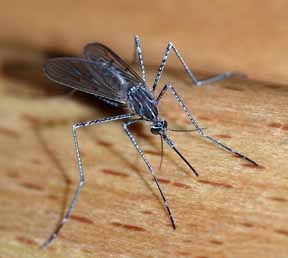 WASHINGTON: Of about 450 different species of mosquitoes in the Anopheles genus, only 60 can transmit the Plasmodium malaria parasite that is harmful to people, scientists say.
WASHINGTON: Of about 450 different species of mosquitoes in the Anopheles genus, only 60 can transmit the Plasmodium malaria parasite that is harmful to people, scientists say.
According to a multi-institutional team of researchers, certain species of mosquitoes are genetically better at transmitting malaria than even some of their close cousins.
The team, including researchers from Virginia Polytechnic Institute and State University, chose 16 mosquito species that are currently found in Africa, Asia, Europe, and Latin America, but evolved from the same ancestor approximately 100 million years ago.
Today, the 16 species have varying capabilities for transmitting malaria and adapting to new environments.
The team sequenced their genomes to better understand the evolutionary science behind the differences.
The results may advance understanding about the biological differences between mosquitoes that transmit malaria, and ultimately, how species might be more precisely controlled to stop transmission.
“With the availability of genome sequences from Anopheles mosquitoes of divergent lineages, variable adaptations, and differing disease-transmission abilities, we now have the exciting opportunity to significantly improve our understanding of these important malaria vectors and develop new strategies to combat malaria and other mosquito-borne diseases,” said Zhijian Tu, a professor of biochemistry in the College of Agriculture and Life Sciences.
A key finding was that the most dangerous species, Anopheles gambiae, is able to increase its transmission capabilities by swapping genes at the chromosome level.
“We found out that multiple rearrangements on the sex chromosome prevent the species from completely intermixing, while traits enhancing malaria transmission capabilities can cross species boundaries if other chromosomes encode them,” said Igor Sharakhov, an associate professor of entomology in the College of Agriculture and Life Sciences.
The results advance the idea that a genetic process called introgression, where genes from one species flow into another, plays a role in evolution, in this case by enhancing the capacity of mosquitoes to transmit the malaria parasite.
The study was published in the journal Science. -PTI






